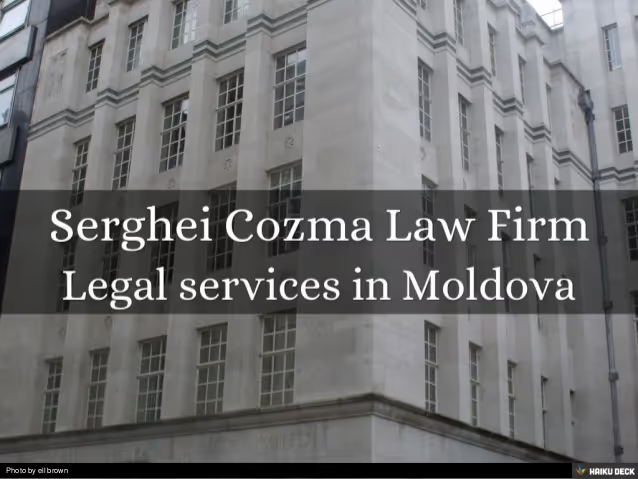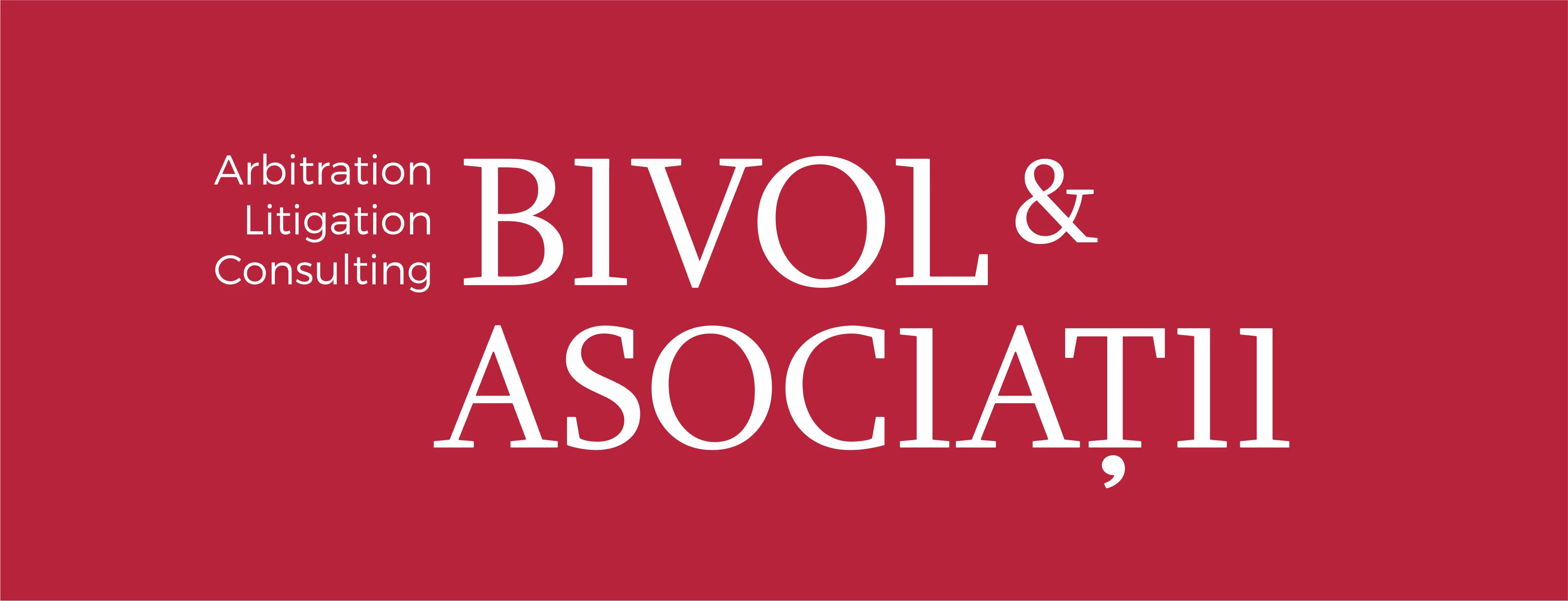Top-Rated Debt Collection Agency in Moldova
Your trusted debt collection agency in Moldova offers swift claim recovery, no upfront fees, and an informative guide to local collection practices. Unlock success with us!






The ultimate guide about debt collection in Moldova
Why you can trust this guide
At Debitura, we uphold the highest standards of impartiality and precision to bring you comprehensive guides on international debt collection. Our editorial team boasts over a decade of specialized experience in this domain.
Questions or feedback? Email us at contact@debitura.com — we update this guide based on your input.
Debitura By the Numbers:
- 10+ years focused on international debt collection
- 100+ local attorneys in our partner network
- $100M+ recovered for clients in the last 18 months
- 4.9/5 average rating from 621 reviews
Expert-led, locally validated
Written by Robin Tam (16 years in global B2B debt recovery). Every page is reviewed by top local attorneys to ensure legal accuracy and practical steps you can use.
Contributing local experts:
Last updated:
Embarking on the journey of Moldovan debt collection? Dive into our guide, as we blend local Moldovan insights with global expertise to unlock a simplified debt recovery process. Equip yourself to proficiently tackle domestic or international debt collection challenges.
Main Architects of Debt Recovery in Moldova
Operating in the precise and complex sphere of Moldovan debt recovery necessitates an understanding of the significant players and their responsibilities. This encompasses debt collection agencies, bailiffs, and debt collection lawyers, each orchestrating unique roles, aiming for efficient debt recovery within Moldova's strict legal environ.
Debt Collection Agencies in Moldova
Debt collection agencies in Moldova serve as pivotal intermediaries in the debt recovery landscape, bridging the gap between creditors and debtors. They are engaged early in the debt recovery process, focusing on amicable resolutions through negotiations and structured communications. Utilizing an array of strategies such as phone calls, letters, and emails, these agencies strive to facilitate voluntary repayment from debtors, thereby averting the need for legal proceedings. Governed by Moldova's legal framework, these agencies operate under stringent regulations that dictate fair practice while safeguarding consumer rights against abusive practices. They aim for resolutions prior to court involvement, marking a critical step for creditors favouring less confrontational means of debt recovery. Despite their rigorous efforts, their capabilities are confined to non-judicial measures, necessitating other avenues for legal recourse when required.
Lawyers in Moldova
In Moldova, lawyers play a pivotal role in the debt recovery landscape, especially when the extrajudicial collection efforts have been exhausted and a legal suit becomes necessary. They are instrumental in navigating the complexities of the Moldovan legal system, preparing and filing legal documentation, and representing creditors during court proceedings. Typically, lawyers get involved when amicable resolutions fail, and the debt amount or dispute complexity necessitates formal intervention through litigation. Their extensive expertise not only facilitates a more informed approach towards debt recovery but also significantly enhances the chances of a favorable outcome for the creditor. This crucial involvement ranges from preliminary legal advice, negotiating payment terms under legal scrutiny, to executing enforcement procedures mandated by court judgments. As legal professionals, they ensure that the creditor's rights are vehemently protected throughout the judicial process, making their role indispensable for achieving successful debt recovery in Moldova.
The Role of Bailiffs in Moldova's Debt Collection
In Moldova, bailiffs, or judicial executors, are pivotal figures in the debt recovery landscape. They are endowed with the authority to enforce court judgments by applying measures like asset seizure, eviction, and serving legal documents. Bailiffs come into the picture when a debtor fails to fulfill obligations voluntarily after a court order has been issued against them. This step is pivotal for creditors aiming to realize their rights through enforced legal actions.
Before a bailiff can be involved, a definitive court order is a prerequisite. This legal directive then enables the bailiff to conduct a variety of tasks designed to ensure compliance by the debtor. These tasks include the seizure of bank accounts, salary, business shares, or other claims the debtor may have against third parties, ensuring a comprehensive approach to debt enforcement. Such measures demonstrate the bailiffs' comprehensive authority to affect not just the immediate possessions of a debtor, but also their broader financial engagements, underlining the critical role they play in Moldova's debt collection process.
The Legal Landscape of Debt Collection in Moldova
Understanding Moldova's intricate legal landscape is paramount for efficient debt recovery. By adhering to these laws, one can not only recover debts effectively, but also maintain a standard of fairness in proceedings, crucial for fostering a culture of trust and integrity in business interactions.
The Regulatory Environment and Civil Court System in Moldova
In Moldova, the civil court system is a cornerstone of justice, structured to address various disputes, including debt collection. This hierarchical system ensures fair and transparent proceedings.
- District Courts: These are the first level of courts where most civil cases, including debt recovery processes, begin. They handle initial hearings and judgments on a wide range of matters.
- Courts of Appeal: Serving as the second level, Courts of Appeal review cases from District Courts upon appeal. They examine the application of the law and might overturn or uphold previous judgments.
- Supreme Court of Justice: At the pinnacle of the hierarchy, the Supreme Court serves as the final appellate body. It addresses appeals against decisions from the Courts of Appeal, ensuring the uniform application of law across Moldova.
This system emphasizes transparency, with proceedings often being public. It offers a structured path for redressing grievances, including those related to debt collection, ensuring justice is served at all levels.
Key Legislation Impacting Debt Collection in Moldova
In Moldova, debt collection is governed by specific legal frameworks aimed at ensuring fair practices and protecting all parties involved. These laws encompass various aspects of the debt recovery process from negotiation and court interventions to consumer protection and data handling.
- Law No. 227 from 01.11.2018 - Governs amendments related to financial institutions, covering debt collection logic, criteria for debt recovery methods, and responsibilities in bank insolvency situations.
- Civil Code of Moldova - Establishes the legal foundation for debt assignment, outlining the rules for transferring debts from the creditor to a third party and the responsibilities of debt collection companies.
- The Consumer Protection and Service Safety Law - Provides crucial guidelines for protecting consumers, particularly in the context of debt collection, ensuring that debt collectors adhere to fair practices and respect debtor rights.
This legislative framework in Moldova ensures that debt collection practices are conducted professionally, with respect for the rights of all involved parties and with clear guidelines for resolving disputes. Understanding these laws is paramount for creditors and debt collection agencies operating in Moldova, ensuring compliance and promoting successful debt recovery efforts.
Consumer Protection from Unfair Collection Practices in Moldova
In Moldova, legislation and regulations underline serious commitments to protecting consumers from unfair debt collection practices, ensuring a balance between creditors' rights and debtors' dignity.
- Legislation Prohibiting Abusive Practices: Debt collection activities are strictly regulated to prevent the use of force, threats, or any actions that undermine debtor dignity.
- Transparency and Right to Information: Debt collection companies are required to inform debtors about their rights, ensuring transparency and fairness throughout the collection process.
- Confidentiality and Privacy Protection: The handling of personal and debt-related information is subject to stringent confidentiality rules, safeguarding debtor privacy and data security.
- Consumer Complaint Mechanisms: Moldova's regulatory framework provides avenues for consumers to file complaints against unfair practices, with requirements for debt collection agencies to address these complaints promptly.
- Code of Conduct for Debt Collection: The principled approach to debt collection in Moldova emphasizes ethical standards, correct decisions, and compliance with national laws, fostering a respectful and professional debt recovery environment.
The comprehensive legislation and ethical frameworks governing debt collection in Moldova strike a definitive balance, prioritizing consumer protection against unfair practices while enabling efficient debt recovery. These regulations not only support the integrity of financial transactions but also respect the dignity of consumers.
Mastery of Amicable Debt Collection in Moldova
Discover the advantages of amicable or pre-legal debt collection in Moldova. Outlined here are the procedures, strategies and essential aspects of this process, which provides a faster, less complex method of settling debts, typically managed by competent debt collection agencies.
- Debt Collection Structure: Amicable phase is the first step, emphasizing negotiations without court intervention.
- Legal Framework: Governed by Law No. 227, establishing creditor rights and debtor obligations in Moldova.
- Statute of Limitations: Actions must comply with timelines; Article 58 specifies the prescription period.
- Fees and Interest Rates: Additional charges are allowed; recovery service fees start at 10%, and statutory interest rates apply.
- Consumer Protection: Protects against undue penalties and abusive collection tactics, emphasizing fair debt contestation.
- Cost of Amicable Recovery: More affordable, often operating on a "No recovery - no fee" basis.
- Essential Documentation: Accurate documentation like loan agreements and receipts are crucial for recovery.
- Timeline for Amicable Recovery: Average recovery period is 2 to 4 months, with a high success rate.
- When to Use and Transition: Amicable recovery recommended first for cost-effectiveness and relationship preservation.
- Protection for Debtors: Rights include debt claim verifications and fair repayment negotiations.
Navigating Amicable Debt Collection in Moldova
In Moldova, the amicable debt collection strategy plays a pivotal role in maintaining harmonious relationships between creditors and debtors. This approach emphasizes negotiation and understanding, aiming to find a mutually agreeable solution for debt recovery, outside the courts. It’s particularly designed for non-disputed claims, where legal action can be bypassed, saving both time and money while preserving important business relationships.
The Collection Agency's Role in Amicable Debt Recovery in Moldova
Given the intricacies of Moldovan civil law, involving a debt collection agency like Debitura can significantly streamline the recovery process. We specialize in the initiation of diplomatic dialogue, leveraging our expertise in the local legal landscape and psychological tactics, as outlined in the extrajudicial debt recovery methods prevalent in Moldova. Our neutral stance aids in mediating agreements that are respectably met by debtors, ensuring a higher probability of recovery.
Advantages of Amicable Debt Resolution
Choosing the path of amicable collection comes with considerable benefits for all involved. It not only helps creditors in saving on the legal expenditures but also in retaining potentially long-term clientele by adopting a non-aggressive approach. For debtors, the negotiation leads to achievable repayment plans, thereby minimizing financial distress. This method underscores empathy and communication, laying the groundwork for future cooperation.
Transitioning from Amicable to Legal Collection in Moldova
There are scenarios where transitioning to legal proceedings becomes inevitable. Signals to escalate include persistent avoidance by the debtor, numerous broken promises, or outright refusal to engage in amicable resolution efforts. Debitura recommends this move as a well-considered decision, bearing in mind the inevitable increase in costs and duration associated with legal actions. It’s advisable to proceed with this step only after all amicable avenues have been thoroughly explored.
Amicable Debt Collection Costs in Moldova
Debitura ensures a transparent, no-success, no-fee policy in Moldova, reflecting our confidence in our amicable collection approach. Our pricing model ranges from 7.5% to 30% of the recovered amount, providing an affordable alternative to legal action. This fee structure is contingent upon successful recovery, underscoring our commitment to cost-effective solutions. Discover more about our pricing.
How it Works
The amicable debt recovery process with Debitura is designed for efficiency, typically concluding within a 2 to 3-month timeframe. Here's how to engage:
- Sign Up for Free: Begin without any upfront payments. Start your journey here.
- Upload Your Claim: Submit your claim for review, acknowledge the success fee, and initiate the process.
- Track Progress: Stay updated with every development in the recovery process through your personalized Debitura dashboard.
- Consider Legal Action: Should amicable efforts not yield the desired outcomes, we offer comparative quotes from local attorneys, empowering informed decisions for potential legal routes.
The Intricacies of Legal Debt Collection in Moldova
Encountering difficulty in amicable debt recovery often leads to judicial debt collection, necessitating legal intervention. This refers to securing a court order involved with bailiffs for claim enforcement. Ensuing discussions provide a detailed analysis of Moldova's specific judicial debt collection process.
- Hierarchical Court System: Moldova has a structured court system from the Supreme Court of Justice down to District Courts for debt recovery.
- Transparent Proceedings: Court sessions are recorded and accessible to the public, ensuring transparency and fairness.
- Rights Protections: Moldovan law affords specific protections within judicial proceedings, safeguarding rights of all parties involved.
- Legislative Framework: Debt collection is governed by Law No. 227, focusing on depositor protection and financial entity responsibilities.
- Debt Collection Companies: Governed by national laws and the Collector's Code of Conduct, ensuring ethical interactions with debtors.
- Consumer Protection: Strong emphasis on protecting consumers in debt collection, overseen by the National Bank of Moldova.
- Judicial Debt Recovery: Courts are engaged for debt recovery when out-of-court resolutions are not possible.
- Small Claims Procedures: Streamlined process for claims not exceeding 100 conventional units, offering quicker resolution.
- Prohibited Practices: Use of force or threats by debt collectors is strictly prohibited, ensuring dignity of debtors.
- Correct Judicial Venue: The choice of court depends on the claim's nature and value, providing efficient legal paths for recovery.
Shifting from Amicable to Judicial Debt Collection in Moldova
In the debt recovery landscape of Moldova, creditors often start with amicable collection methods, which involve negotiation and payment arrangements. However, when these efforts fail to secure repayment due to disputes or refusal from the debtor, transitioning to judicial debt collection becomes necessary. This process requires the intervention of Moldovan courts and is vital for enforcing the recovery of outstanding debts legally. The shift signifies the creditor's need to pursue formal legal action, underlining the importance of obtaining professional legal counsel or representation to navigate the complexities of judicial proceedings effectively.
The Importance of a Formal Judgment in Moldova
A formal court judgment in Moldova is a crucial component of the judicial debt collection process. Obtaining this legal document is the first step towards enforcing a debt recovery claim through the judiciary. A court order officially recognizes the creditor’s claim against the debtor and specifies the amount owed. It provides the legal foundation for subsequent enforcement actions, such as asset seizure or garnishment, to recover the debt. Creditors initiate this process by filing a lawsuit in the competent court, presenting evidence to support their claims, and participating in the legal proceedings leading to a judgment.
Determining the Appropriate Court in Moldova
In Moldova, the choice of court for filing a debt recovery lawsuit depends on the claim's size and complexity. For small claims not exceeding 100 conventional units, the Tribunal for Small Claims offers a simplified and quicker resolution process. These tribunals are designed to offer a more efficient way for individuals and businesses to resolve disputes involving smaller monetary amounts. For larger debts or more complicated legal issues, cases may fall under the jurisdiction of the District Courts, Courts of Appeal, or even the Supreme Court of Justice, based on the hierarchical structure of the Moldovan court system. The determination factors include the claim's financial value and the complexity of the legal issues involved, underscoring the necessity of understanding Moldovan legal provisions and possibly seeking legal guidance to navigate the judicial landscape efficiently.
Small Claims Court in Moldova
In Moldova, the Tribunal for Small Claims provides an expedited and simplified legal pathway for resolving disputes involving claims valued at up to 100 conventional units. This specialized court aims to deliver a more accessible, quicker, and cost-effective option for parties seeking justice in minor financial disputes, characteristic of its commitment to enhance the efficiency of legal proceedings. The streamlined process distinct to the Tribunal for Small Claims is especially beneficial for creditors and individuals looking to recover smaller debts without undergoing the traditionally more comprehensive and time-consuming court procedures. By fostering a more straightforward approach to legal dispute resolution for small claims, Moldova's legal framework supports the protection of creditors' rights while ensuring that debtors are treated fairly and equitably under the law. It's important for parties considering this option to be aware of the 100 conventional unit threshold, as it delineates the maximum claim size that the Tribunal for Small Claims is authorized to handle.
Ordinary Proceedings in Moldova
In Moldova, ordinary proceedings form the backbone of the judicial system for resolving disputes of a more significant nature than those handled in small claims court. Unlike the simplified and expedited nature of small claims, ordinary proceedings are comprehensive, catering to complex cases with higher stakes. One of the notable advantages of ordinary proceedings over small claims court is their capacity to handle a broad spectrum of legal disputes without the limitations on claim value. Furthermore, ordinary proceedings allow for full legal representation, meaning parties can and often must engage legal professionals to navigate the intricacies of their case, thereby ensuring a more robust defense or claim presentation.
The legal framework governing ordinary proceedings in Moldova is deeply rooted in the civil law system, ensuring detailed procedural guidance and a structured approach to dispute resolution. This is encapsulated within various legislative acts, including the Civil Procedure Code of Moldova, which sets forth the rules for conducting these proceedings. A key requirement is the compulsory representation by a lawyer in cases exceeding certain thresholds, illustrating the emphasis on professional legal advocacy in ensuring justice and fairness in the judicial process. The incorporation of ordinary proceedings offers a balanced approach to addressing legal disputes, providing a pathway to justice that is both comprehensive and accessible.
Navigating Debt Enforcement in Moldova
When it comes to enforcing a court-ordered debt collection in Moldova, understanding the ins and outs is critical. Recognise how the intervention of bailiffs establishes your authority to claim and liquidate your debtor's assets accordingly in this complex process often referred to as 'debt enforcement'.
- Debt Enforcement in Moldova: Involves legal proceedings culminating in the debtor's loss of assets due to non-payment.
- Role of Bailiffs: Bailiffs in Moldova have expanded roles post-2010 reform, including asset seizure and organizing auctions for debt recovery.
- Cost Implications: Additional costs such as legal fees, collection fees, and late interest of 16% per year may be incurred during enforcement.
- Legal Foundation for Action: Governed by Law No. 227 from 01.11.2018, focusing on financial institution regulations and debt recovery methods.
- Execution Process Overview: After exhausting amicable recovery options, legal action including asset seizure is pursued through court orders.
- Debtor Consequences: Severe impacts including potential asset seizure, credit history damage, and adverse future financial transactions.
- Regulatory Compliance: Practices are regulated, ensuring protection of debtor rights and prohibition against force or intimidation by debt collectors.
- Consumer Protection: The National Bank of Moldova oversees debt collection, emphasizing consumer rights in financial transactions.
- Seizure of Assets: Legal requirements for asset seizure are detailed, covering evaluation, management, and methodologies for asset realization.
Judicial Executors and Fact-Finding in Moldova's Debt Enforcement
In Moldova's complex legal environment, judicial executors have evolved roles that extend beyond simple enforcement. Following systemic reforms initiated in 2010, these professionals not only execute court orders but also engage in comprehensive fact-finding activities. This dual function is crucial in aligning enforcement actions with the confirmed realities of a debtor's situation, ensuring that debt collection processes adhere strictly to legal and ethical standards.
The Stages of Debt Enforcement
The debt enforcement process in Moldova starts with a creditor holding an enforceable title, thereby legitimizing the debtor's obligation. This is a critical juncture where the role of judicial executors comes to the forefront. They are responsible for identifying and seizing assets while maintaining a balance to protect the debtor's basic living standards by exempting certain personal items and income levels from seizure. The process is comprehensive, ranging from asset valuation and execution to the liquidation of assets, typically through auctions, to satisfy creditor demands.
Regulatory Framework and Enforcement Costs
Debt enforcement in Moldova is governed by a robust legal framework set forth by Law No. 227 from 01.11.2018, which oversees the activities of financial institutions including debt collection. This regulatory environment outlines the procedures for the sale of debtor debts, evaluation criteria for recovery methods, and the roles of judicial executors among other elements. Creditors must navigate this framework, taking into account the varying costs associated with court fees, bailiff services, and legal representation, all of which are vital to understanding the financial landscape of enforcement in Moldova.
Encouraging Amicable Settlements
Prior to taking the plunge into formal enforcement actions, it is advised that creditors exhaust all possibilities for an amicable settlement. This preparatory stage includes ensuring the enforceable title is in order and issuing a final demand for payment to the debtor. This not only sets the stage for more forceful legal proceedings, if necessary, but also respects the debtor's rights to challenge or object to enforcement actions. Remarkably, initiatives like the one from INCASO in Moldova, which offers discounts for debt settlements in December, are innovative approaches to encourage debtors to clear their debts amicably, avoiding the need for more drastic legal measures.
Understanding Moldova's Insolvency Procedures for Successful Debt Retrieval
When businesses can't meet their financial obligations, insolvency becomes a pressing issue. Standard recovery approaches, like executing court-ordered asset seizures, often fall short when no tangible assets are left for recovery. In such a predicament, bankruptcy proceedings, aiming for orderly liquidation of debtor’s properties, stand as a vital alternative. They provide a last-ditch effort to retrieve any possible recompense for unsettled liabilities.
- Initiation: Insolvency can be requested by either the debtor or creditors. A judicial administrator is appointed to oversee the debtor's activity.
- Documentation Required: Original power of attorney, copies of invoices and contracts, order confirmations, and any other correspondence validating the claim.
- Procedure Duration: Usually lasts about three years, with possible reorganization to allow payments to creditors or asset liquidation.
- Company Outcome: Limited companies may undergo reorganisation or liquidation based on insolvency proceedings outcomes.
- Claim Lodging: Creditors can lodge claims within a specified deadline post-official publication of the insolvency procedure.
- Rescission Right: Transactions made to defraud creditors up to three years prior to the insolvency can be cancelled.
- Claim Disputation: If a lodged debt is disputed, the creditor may need to file a claim in court to prove their case.
- Debtor's Assets: If the debtor becomes bankrupt, assets are sold, and creditors are paid from the proceeds.
Insolvency Proceedings in Moldova: A Detailed Exploration
In the Republic of Moldova, insolvency procedures are carefully outlined by the legislation to manage situations where companies or individuals are unable to fulfill their financial commitments. These mechanisms aim to either reorganize the debtor's fiscal responsibilities or liquidate possessions to satisfy creditor demands. Initiation of insolvency can emerge from both debtor and creditor sides, contingent upon conditions like the debtor's persistent inability to comply with financial obligations.
The judicial structure of Moldova, comprising the Supreme Court of Justice, Courts of Appeal, and District Courts, plays a pivotal role in adjudicating insolvency cases. This hierarchical system ensures transparency and access to justice, with public proceedings and the right to appeal, providing a clear framework within which insolvency procedures operate. The public nature of these proceedings, underscored by law, facilitates a transparent and accountable process, essential for both debtors and creditors involved in insolvency cases.
Creditors have distinct rights and their claims are methodically classified and prioritized according to Moldovan legislation. This categorization stretches from secured claims with collateral backing to unsecured claims lacking this security. Recognizing these distinctions is vital for creditors, influencing their likelihood of recouping debts. For active participation, creditors are required to record their claims within prescribed deadlines. Engaging in creditor committees or discussing reorganization plans can notably increase the chances of debt recovery.
The financial outlay involved in traversing insolvency procedures can encompass court fees, administrative charges, and expenses for legal representation, which are typically subtracted from the debtor's estate before any allocation to creditors. Additionally, the duration of insolvency cases can vastly vary, impacted by the complexity of the debtor's financial scenario, the breadth of creditor claims, and potential legal disputes. Creditors should brace themselves for these proceedings to potentially stretch over an extended duration, influencing the timeline for recouping debts.
Find a Local Debt Collection Lawyer
Need court-ready representation? Share your case once and receive up to three proposals from vetted litigation attorneys—free, fast, and with no commitment.
- Verified specialists
- Quotes in 24 h, no hidden fees
- Fair, pre-negotiated rates

Global Credit Solutions LTD SRL is a premier debt recovery agency in Chișinău offering effective Debt Collection services in the Republic of Moldova, established in 2010, with a no-win, no-fee model and operations in over 90 countries worldwide.

AGERLEX CONSULTING is a premier debt recovery agency in Chișinău offering effective Debt Collection services in Moldova, recognized for ethical practices and transparent reporting since 2014, operating on a success-fee model and serving leading financial institutions nationwide.

Serghei Cozma Law Firm is a premier law firm in Chisinau offering effective Debt Collection services in Moldova, positioning the firm as the go-to partner for debt recovery with memberships in the Moldavian Bar Association and Baroul Chișinău, founded in 2002.

CA Bunduchi Vitalie is a premier law firm in Chișinău offering effective Debt Collection services in MD, positioning itself as the go-to partner for debt recovery with a solid reputation since 2018, backed by over 170 five-star Google reviews.

BIVOL & ASOCIATII is a premier law firm in Chisinau offering effective debt collection services in the Republic of Moldova, founded in 2020, known for its strategic legal expertise and memberships with FINTECH MOLDOVA and the Chamber of Commerce and Industry France-Moldova, serving clients in multiple countries.





.svg)

.webp)
.png)

.png)
.svg)












.webp)